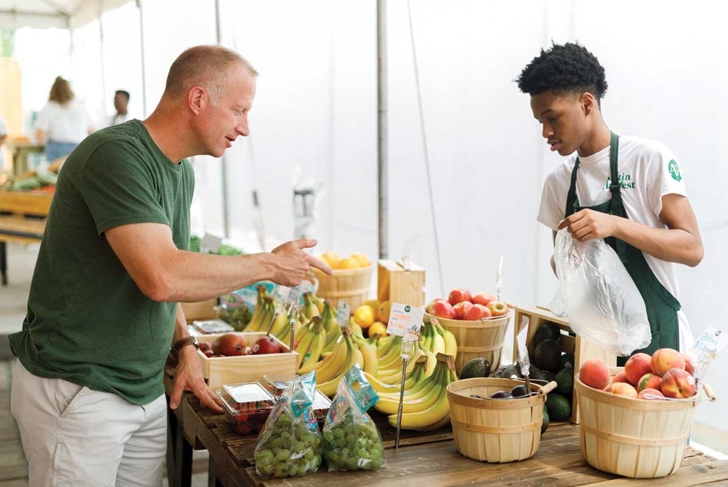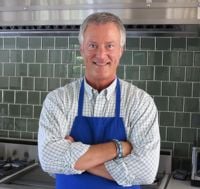Innovation for Good: By The Hand and Matriark

By The Hand: Austin Harvest
There are many reasons why families in this country are unable to achieve optimal health, and one significant factor is living in a food desert. The Centers for Disease Control and Prevention (CDC) defines a food desert as “areas that lack access to affordable fruits, vegetables, whole grains, low-fat milk, and other foods that make up the full range of a healthy diet.”
The saying “necessity is the mother of invention” holds a lot more meaning for a group of students in a low-income neighborhood in Chicago, who were brought together by an innovative after-school mentorship program called By The Hand.
These students observed that there were more liquor stores than grocery stores in their neighborhood and decided to do something about it. Austin Harvest started as an open-air pop-up on the site of a looted liquor store, intended to bring fresh produce briefly to an area that was largely without. Rodney Williams, Director of Entrepreneurship at By The Hand, elaborates “Austin Harvest was originally conceived to be a short-term pop-up for just 12 weeks. But it became clear very early on that there was a deep community need for more.” Noticing the sustained demand for fresh foods, the students were determined to make it a long-term solution.
With Austin Harvest’s newly erected bricks-and-mortar establishment, student entrepreneurs like LaQuintion Wooten will be responsible for all aspects of operations including planning, staffing, ordering, and inventory management. Wooten’s enthusiasm speaks for all: “Austin Harvest has made such a positive change in my community and it’s an honor to be a part of it.”
Matriark
The US Department of Agriculture (USDA) estimates that 19 million people, or 6.1 percent of the population, live in the low-income, low-access food deserts—a troubling statistic. Yet there is an even more upsetting USDA statistic: in the US, food waste is estimated at 30 to 40 percent of the food supply. In addition to the significant implication of these statistics, wasting over one-third of the food produced also negatively impacts the environment.
Matriark Foods and its founder and CEO Anna Hammond are taking three-barreled aim at these problems. The company upcycles farm surplus and remnants into healthy vegetable products for schools, hospitals, and food banks. Thus, they reduce food waste and thereby environmental degradation, provide affordable nutrition to communities in need, and contribute to livable incomes for farmers.
“The combined passions for combating food waste, supporting farmers, and creating access to healthy food drive me,” declares Hammond. “Matriark Foods is working to change food systems for the benefit of future generations. We envision a world where everyone has access to healthy food, food waste is utilized rather than wasted, and farmers are making fair wages.”





